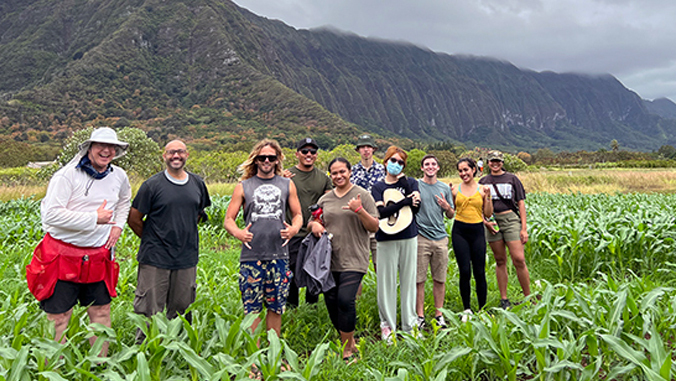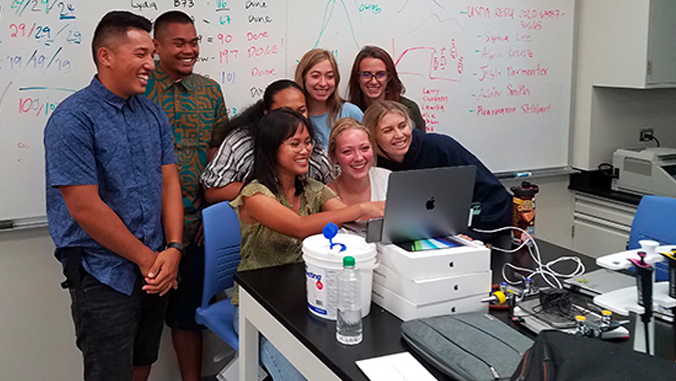
A free program (covering food, lodging and travel) aims to provide students with tools to slow erosion, combat weeds and improve agriculture yields through data driven agriculture (DDA). This involves growing plants, recording and analyzing their measurements, and then applying the data to real-life scenarios.
The University of Hawaiʻi at Mānoa’s College of Tropical Agriculture and Human Resources’ (CTAHR) Department of Tropical Plant and Soil Sciences (TPSS) has been applying DDA findings to identify which tropical plants could potentially do well in other environments beyond Hawaiʻi and what role they could play.
In Hawaiʻi, the data helps scientists understand the range of traits in tropical plants and how they fit into any of the state’s many vulnerable agroecosystems. Leveraging data means better plants can be selected and promoted for food production or protecting the environment. With the data collected, farmers can choose the measurements that matter, determine important cost-reducing traits and generate improved prediction models.
“[DDA] could enable farmers, gardeners and conservationists to target specific traits to figure out where and what to grow,” said Tai McClellan Maaz, a researcher from TPSS.
Maaz and collaborators Nhu Nguyen, Michael B. Kantar, Yuriy Mileyko and Michael Muszynski are even looking at below-ground architecture, such as root systems, to better understand how plants can anchor themselves and withstand harsh environmental conditions.
Educating future agriculturists
The emphasis on the most recent methods and cutting-edge techniques is relevant for younger agriculturists in a modern workforce. The desire to educate the next generation of scientists has motivated Maaz to host a summer undergraduate research program for students with an interest in plant, data or computer science.
“The program is team based and the research is a collaborative process,” said Maaz. “So the students will work together, grapple through problems together, find solutions together, and present together. We will take field trips and volunteer for the community, so they’ll better understand the community’s needs and how to use what they are learning to help real people. This makes it much more fun and meaningful.”
Designed to meet the needs of Hawaiʻi and the Pacific Islands, the nine-week, in-person program will be held June 5–August 4, with a $4,000 stipend plus expenses. Interested students are encouraged to apply by February 28.
For more information, visit the CTAHR website.


